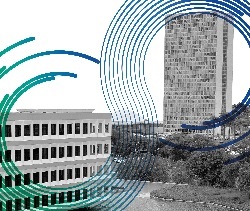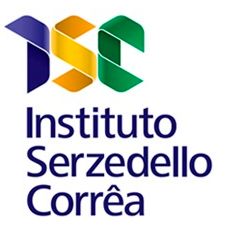The Court

THE COURT
A brief introduction
The Federal Court of Accounts – Brazil (Tribunal de Contas da União -- TCU) audits the accounts of administrators and other persons responsible for federal public funds, assets, and other moneys, as well as the accounts of any person that causes loss, misapplication, or other irregularities that result in losses to the public treasury. Such administrative and judicative authority, among others, is provided for in art. 71 of the Brazilian Constitution.
Composition
According to the Brazilian Constitution, ministers may be selected from among Brazilians between the ages of thirty-five and sixty-five, of moral integrity and unquestioned reputation, who possess recognized knowledge in the areas of Law, Accounting, Finance, or Public Administration and who have a minimum of ten years’ experience in such capacities, or in professional activities that require the aforementioned knowledge. The Court consists of nine ministers. The Congress appoints six of them and the others are selected by the President of the Republic, contingent on approval by the Senate; out of the three Presidential appointees, two must be auditors or members of the Public Prosecution Office within the Court.
The Court also has four auditors, chosen by means of a civil service entrance examination. Internally these auditors are referred to as substitute ministers, as they fill in for the ministers when these are absent due to vacations, sabbaticals or for other reasons. As mentioned above, they enjoy preference in accession to the office of Minister among Presidential appointees.
The TCU is a collegiate body, composed of the Full Court – the Court’s highest authority – and two Chambers.
How TCU works
The Court’s rulings are usually made by the Full Court. However, when applicable, one of the Chambers also delivers decisions. The Full Court and the two Chambers meet once a week, on alternate days, between January 17th and December 16th of each year and, extraordinarily, whenever necessary. Extraordinary sessions are called to handle administrative matters or whenever there is a need for protecting the rights of individuals or the public interest. Sessions are held under strict confidentiality in the case of deliberations over lawsuits involving whistleblowers, in which case the name of the accuser must be kept confidential.
The Court's President and Vice-President are ministers, elected by their peers for a one-year-term, and may be re-elected once.
Full Court
The Full Court, made up of all the ministers, meets on Wednesdays. Chaired by the President of the Court, the Full Court has the responsibility to deliberate on relevant matters as listed under the Court's Bylaws under the title "Jurisdictional Power of the Full Court".
Chambers
The First and Second Chambers meet on Tuesdays and Thursdays, respectively. Each chamber is composed by four ministers. One of them is chaired by the Vice-President, while the other is chaired by the most senior minister in office. Matters attributed to the Chambers are ascribed in the Court's Bylaws under the title "Jurisdictional Power of the Chambers".
The Public Prosecution Office within TCU
There is also an autonomous and independent office of Public Prosecution dedicated to the Court, the main task of which is upholding the legal order.
The Public Prosecution Office comprises a prosecutor general, three deputy prosecutors general, and four prosecutors, appointed by the President of the Republic from among law-degree holders, who have previously passed a public competition.
The Prosecutor General within the Court, pursuant to his mission as a guardian of the law and inspector of its enforcement, has, before the Court, the responsibility of maintaining and defending the legal order, as described in the Court's Internal Bylaws under the title "Department of Justice".
The presence of a representative of the Public Prosecution Office is mandatory in sessions involving adjudication of accounts, audits, representations and accusations.
Back to top


